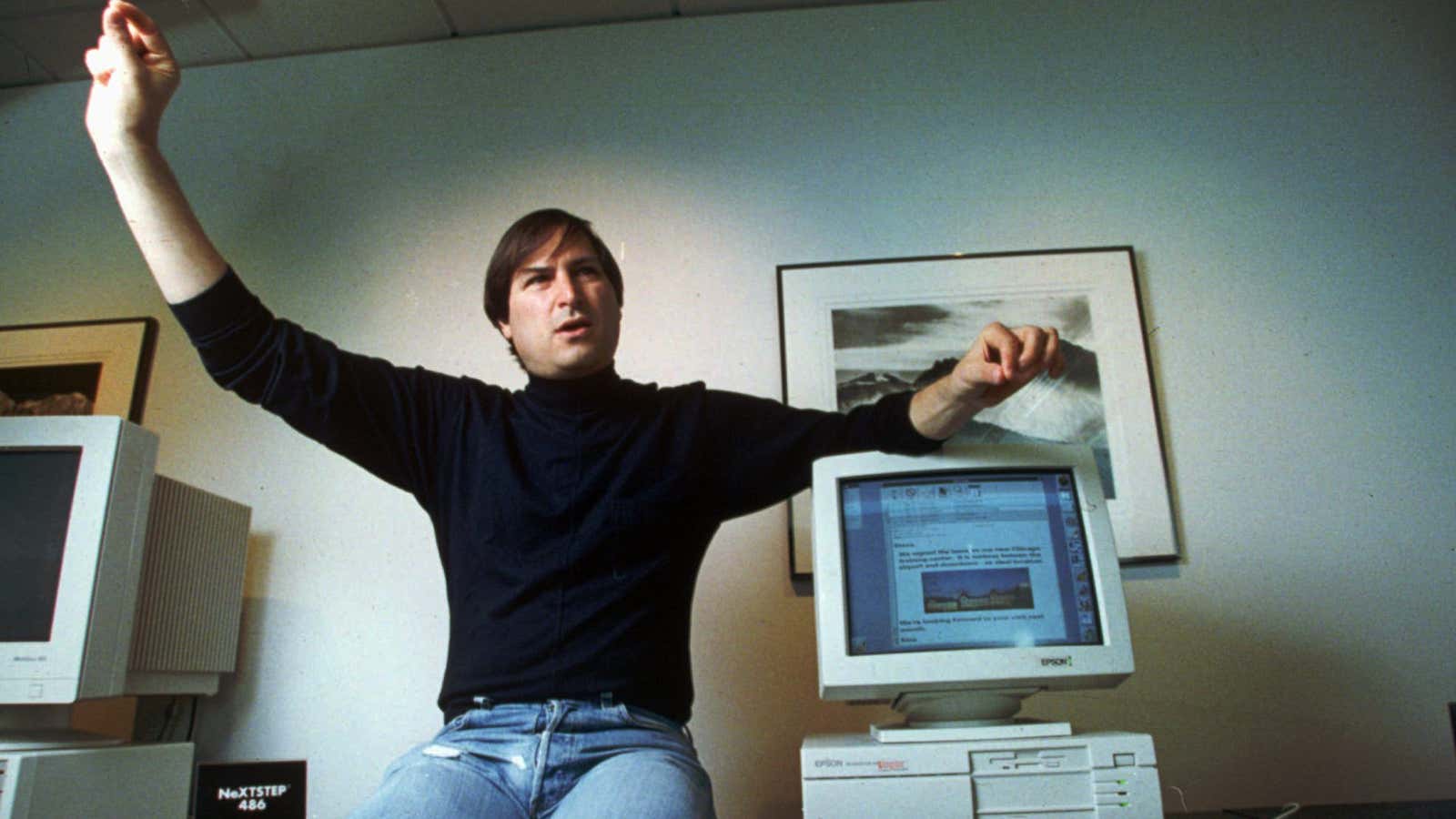Nobody ever accused Steve Jobs of lacking strong opinions.
In a video posted to YouTube, a young Jobs talks candidly about his approach to management and leadership. As the founder of Apple, and the guiding force who transformed it from emerging upstart to one of the world’s most innovative and valuable companies, his thoughts are worth taking seriously. Though professional managers may not exactly like what he has to say.
“We went through that stage in Apple where we went out and we thought, ‘Oh, we’re going to be a big company. Let’s hire professional management,'” he says. “We went out and hired a bunch of professional management. It didn’t work at all. Most of them were bozos.”
The problem, he explains, wasn’t that they didn’t know how to manage. They did. But that didn’t make them great leaders, he explains, because they “didn’t know how to do anything.”
Jobs says these managers had nothing to teach the exceptional engineers working for them. The best managers, he says, are “the great individual contributors” who don’t actually want to be managers but step up because they don’t see anyone else who can do the job better.
The video explains the intense recruiting process at Apple in its early days. Candidates could have interviews from early in the morning until dinner, meeting numerous people within the company. The point was to find those individuals who weren’t just smart in person and good on paper, but genuinely passionate about the product and a good fit for the company’s distinct culture. Jobs wanted people who didn’t actually have to be managed.
“I consider the most important job of someone like myself is recruiting,” he says.
The job of a leader in that culture isn’t to manage at all, but to guide everyone toward the same goal. “What they need is a common vision,” Jobs says, “and that’s what leadership is.”
His perspective sounds quite similar to that of a well-regarded leader in a very different field. At an event last year, Sidney Toledano, the president and CEO of Christian Dior, described his approach to managing creatives at one of the world’s most prestigious fashion brands. “First of all, forget about managing,” he said.
Managing isn’t, or at least shouldn’t be, a top-down affair, where one person delivers orders for those beneath to follow. Rather, it’s a collaboration with a shared end point. The key is to make sure everyone understands and is working toward that goal.
